Excursie în Deltă sau… teambuilding?
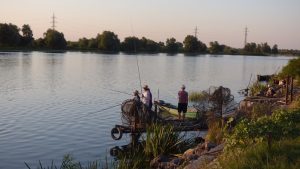 Cea de-a doua jumătate a lunii iulie, prima lună de proiect pentru patru din cei cinci voluntari, a adus momentul unei excursii în Delta Dunării. Scopul acesteia fiind bineînțeles de a pune voluntarii împreună și de a-i forma ca o echipă, de a-i determina să lucreze împreună, să se cunoască
Cea de-a doua jumătate a lunii iulie, prima lună de proiect pentru patru din cei cinci voluntari, a adus momentul unei excursii în Delta Dunării. Scopul acesteia fiind bineînțeles de a pune voluntarii împreună și de a-i forma ca o echipă, de a-i determina să lucreze împreună, să se cunoască 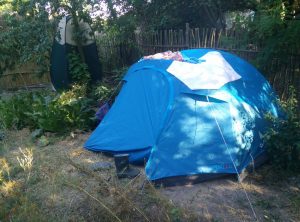 și să învețe să se bazeze unul pe altul. Ce altă ocazie mai bună de a face asta decât opt zile la pescuit în Deltă, în care se trăiește la cort și se mănâncă doar ce
și să învețe să se bazeze unul pe altul. Ce altă ocazie mai bună de a face asta decât opt zile la pescuit în Deltă, în care se trăiește la cort și se mănâncă doar ce 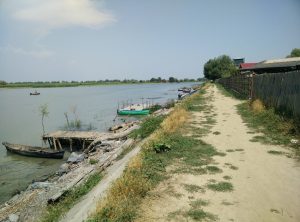 se prinde? Înainte de a continua trebuie menționat că a există de la bun început și varianta muntelui, însă pentru toți cei cinci voluntari SEV, Delta Dunării a sunat mult mai ademenitor.
se prinde? Înainte de a continua trebuie menționat că a există de la bun început și varianta muntelui, însă pentru toți cei cinci voluntari SEV, Delta Dunării a sunat mult mai ademenitor.
The second half of July, first project month for four of the five volunteers, brought the moment of a trip to Danube Delta. It’s purpose was, of course, to put the volunteers together, to determine them become a team, to make them work together, to get to know each other and to learn to rely on each other. So what a better opportunity to do this than eight days in Danube Delta; eight days to live in a ten and eat 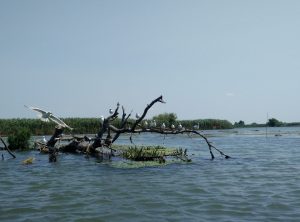 what you catch. Before continuing we have to mention that there was also the option of choosing mountain, but for all five EVS volunteers Danube Delta sounded much more catchy.
what you catch. Before continuing we have to mention that there was also the option of choosing mountain, but for all five EVS volunteers Danube Delta sounded much more catchy.
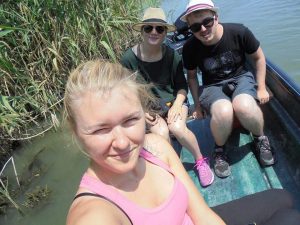 Opt zile au adus și bune și rele, au adus soare și căldură, țânțari și miros constant de pește, stres și nervi întinși. Însă au mai adus altceva, au adus o echipă în care fiecare îl cunoaște pe celălalt mult mai bine și în care există ceva ce îi leagă la un cu totul alt nivel.
Opt zile au adus și bune și rele, au adus soare și căldură, țânțari și miros constant de pește, stres și nervi întinși. Însă au mai adus altceva, au adus o echipă în care fiecare îl cunoaște pe celălalt mult mai bine și în care există ceva ce îi leagă la un cu totul alt nivel.
Eight days brought good and bad stuff, brought sun and heat, mosquitos and constant smell of fish, stress and tension. But they also brought something else, they brought a team în which each person knows the other one much better and in which there is something that connects them at a whole new level.
Cinema night! – Seară de Film!
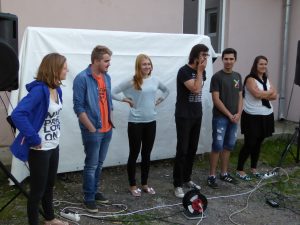 Part of the work of our volunteers is to organize outdoor cinema nights. Yes, they have to choose a setting (everytime a different one, preferably), choose a film, organize the logistics and promote the event. You may wonder why organizing a cinema night? Because the closest cinema is in Ploiești at over 50km away and usually at the time when the film finishes, there is no bus or train to return, so for many people this might be an impediment. In addition this kind of cinema is also a way of meeting people and socializing.
Part of the work of our volunteers is to organize outdoor cinema nights. Yes, they have to choose a setting (everytime a different one, preferably), choose a film, organize the logistics and promote the event. You may wonder why organizing a cinema night? Because the closest cinema is in Ploiești at over 50km away and usually at the time when the film finishes, there is no bus or train to return, so for many people this might be an impediment. In addition this kind of cinema is also a way of meeting people and socializing.
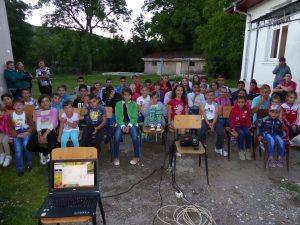 O parte din ceea ce au de făcut voluntarii noștri este și organizarea de seri de cinema în aer liber. Pentru asta ei trebuie să aleagă locul (de preferință altul de fiecare dată), filmul, să aibă grijă de detaliile logistice și să promoveze evenimentul. V-ați putea întreba de ce să organizezi o seară de film. Deoarece cel mai apropiat cinematograf este în Ploiești, oraș care e la mai mult de 50 km distanță, iar la ora la care cele mai multe filme termină de rulat nu prea mai există mijloc de transport pentru întoarcere. Pe lângă asta acest tip de cinema în aer liber este și o ocazie bună pentru oameni să se întâlnească și să socializeze.
O parte din ceea ce au de făcut voluntarii noștri este și organizarea de seri de cinema în aer liber. Pentru asta ei trebuie să aleagă locul (de preferință altul de fiecare dată), filmul, să aibă grijă de detaliile logistice și să promoveze evenimentul. V-ați putea întreba de ce să organizezi o seară de film. Deoarece cel mai apropiat cinematograf este în Ploiești, oraș care e la mai mult de 50 km distanță, iar la ora la care cele mai multe filme termină de rulat nu prea mai există mijloc de transport pentru întoarcere. Pe lângă asta acest tip de cinema în aer liber este și o ocazie bună pentru oameni să se întâlnească și să socializeze.
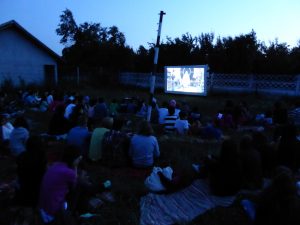 And to see how things went for our first two cinema nights here you have pictures as proofs. The first two pictures are from Schiulești – the village where our volunteers live and the number of spectators was around 50. The last picture is from the school yard in Izvoarele and more people than expected showed up. How many more? 130!
And to see how things went for our first two cinema nights here you have pictures as proofs. The first two pictures are from Schiulești – the village where our volunteers live and the number of spectators was around 50. The last picture is from the school yard in Izvoarele and more people than expected showed up. How many more? 130!
Și ca să vedeți cum a mers la primele două serie de film am adăugat și câteva poze. primele două poze sunt din Schiulești – satul unde locuiesc voluntarii noștri, iar numărul spectatorilor a fost de aprox 50. Ultima poză este de pe terenul de sport al Școlii din Izvoarele, iar acolo au fost prezenți mai mulți oameni decât s-ar fi așteptat cineva. Cât de mulți? 130!
Enjoying Romania
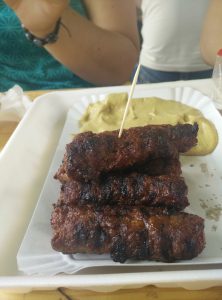 Catching some free days our EVS volunteers traveled around a bit and they discovered the culture and the traditions, the landscapes and the beautiful cities. So this post will be mostly made of pictures and less of words.
Catching some free days our EVS volunteers traveled around a bit and they discovered the culture and the traditions, the landscapes and the beautiful cities. So this post will be mostly made of pictures and less of words.
Folosind câteva din zilele libere voluntarii SEV au călătorit prin împrejurimi pentru a descoperi cultura și tradițiile, peisajele și frumoasele orașe. În majoritate acest post va fi alcătuit din poze și prea puțin din text.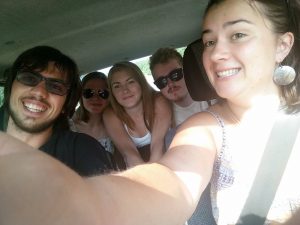
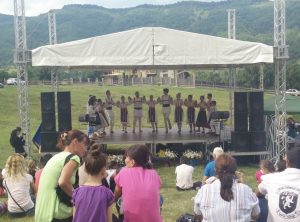
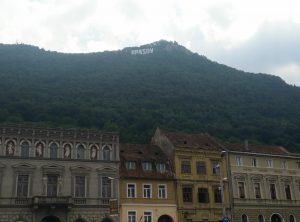
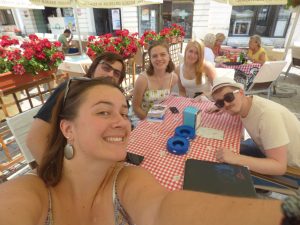
Welcome to Romania
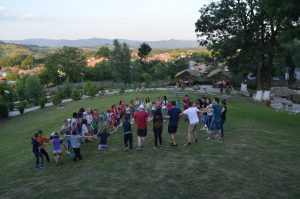 Pentru a fi mai ușor comunității și pentru a-i face pe musafirii noștri să se simtă primiți și acceptați am organizat o seară de activități în parcul din satul Schiulești. Voluntarii locali și voluntarii SEV au transformat pentru o seară parcul din capătul satului Schiulești într-o zonă plină de distracție, veselie și voie bună. Pozele o dovedesc.
Pentru a fi mai ușor comunității și pentru a-i face pe musafirii noștri să se simtă primiți și acceptați am organizat o seară de activități în parcul din satul Schiulești. Voluntarii locali și voluntarii SEV au transformat pentru o seară parcul din capătul satului Schiulești într-o zonă plină de distracție, veselie și voie bună. Pozele o dovedesc.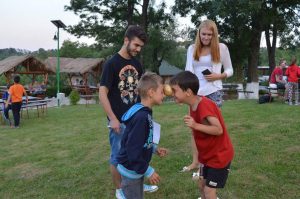
To make it easier for the community and to make our guests feel accepted and welcomed we organized an evening of activities in Schiulești’s park. Local volunteers together with EVS ones turned the park for an evening into a place full of fun, joy and good mood. Pictures can prove it.
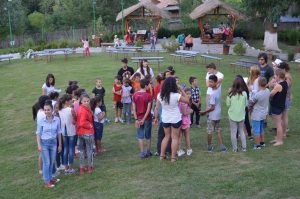 După un astfel de început și cu atât de multă energie nu se poate să nu apară rezultate minunate. Stați aproape pentru noutăți 😉
După un astfel de început și cu atât de multă energie nu se poate să nu apară rezultate minunate. Stați aproape pentru noutăți 😉
After such a beginning and such a welcoming day it will be impossible to not have great results. Stay tunned for news 😉
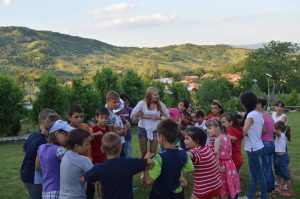
Unu plus patru – One plus four
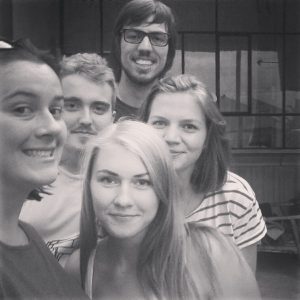 After two months in which Sophie was alone, discovering the community and playing games, doing animation and encouraging young people to use their knowledge of French and English, reinforcements have arrived. In the beginning of July four more youngsters joined her in the adventure of an EVS. So here they are: Liina, Franck, Hanna and Kristijan coming from Estonia, France, Germany and Macedonia.
After two months in which Sophie was alone, discovering the community and playing games, doing animation and encouraging young people to use their knowledge of French and English, reinforcements have arrived. In the beginning of July four more youngsters joined her in the adventure of an EVS. So here they are: Liina, Franck, Hanna and Kristijan coming from Estonia, France, Germany and Macedonia.
După două luni în care Sophie a fost singură, descoperind comunitatea, jucând jocuri, făcând animație socio-educativă și încurajând tinerii să îți folosească cunoștințele de engleză și franceză, au sosit ajutoarele. În primele zile ale lui iulie patru tineri i s-au alăturat în aventura unui SEV. Ei sunt: Liina, Franck, Hanna și Kristijan și vin din Estonia, Franța, Germania și Macedonia.
One of the objectives of having them here is to determine the community to become foreigner-friendly and moreover to show them the opportunities EU offers to its citizens. Beside these, Curba de Cultură wants to set a tradition in having foreigners in the community of Izvoarele. Will it work? The next ten months will be crucial for that.
Unul dintre obiectivele aducerii tinerilor străini aici este determinarea comunității să devină prietenoasă cu străinii și mai mult să le arate oportunitățile pe care UE le oferă cetățenilor săi. Pe lângă astea Curba de Cultură vrea să pornească o tradiție prin găzduirea străinilor în comunitatea izvorană. Va funcționa oare? următoarele zece luni vor fi cruciale pentru aflarea răspunsului.
Waiting for time to pass – for things to happen
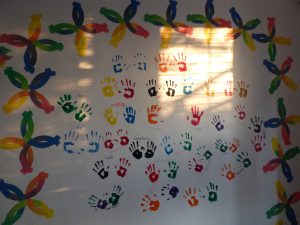 Summer is here and things move slower than usual, days are longer and hotter and lazier. At Curba de Cultură things still have to move though. What kind of things? Well, activities with children in schools, planning and scheduling summer activities, organizing cinema nights and last but not least preparing the house for the new group of volunteers coming in beginning of July. Yes, from July four other volunteers will join Curba de Cultură’s team to bring energy, cultures and experiences. Are you excited?
Summer is here and things move slower than usual, days are longer and hotter and lazier. At Curba de Cultură things still have to move though. What kind of things? Well, activities with children in schools, planning and scheduling summer activities, organizing cinema nights and last but not least preparing the house for the new group of volunteers coming in beginning of July. Yes, from July four other volunteers will join Curba de Cultură’s team to bring energy, cultures and experiences. Are you excited?
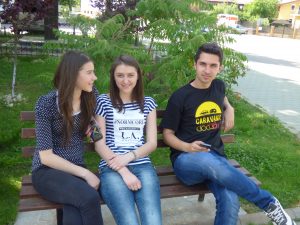 Vara e aici deja și lucrurile par a se mișca mai încet decât de obicei, zilele au devenit mai lungi, mai calde și mai leneșe parcă. Totuși la Curba de Cultură lucrurile trebuie să se miște. Ce fel de lucruri? Ei bine activități în școlile din comună, planificări pentru activități de vară, organizare de cinema în aer liber și ultimul dar nu cel mai lipsit de importanță lucru pregătirea casei pentru noi voluntari. Da-da, la începutul lui iulie patru alți voluntari se vor alătura echipei Curba de Cultură cu forțe proaspete, noutăți culturale și experiențe. Pare interesant?
Vara e aici deja și lucrurile par a se mișca mai încet decât de obicei, zilele au devenit mai lungi, mai calde și mai leneșe parcă. Totuși la Curba de Cultură lucrurile trebuie să se miște. Ce fel de lucruri? Ei bine activități în școlile din comună, planificări pentru activități de vară, organizare de cinema în aer liber și ultimul dar nu cel mai lipsit de importanță lucru pregătirea casei pentru noi voluntari. Da-da, la începutul lui iulie patru alți voluntari se vor alătura echipei Curba de Cultură cu forțe proaspete, noutăți culturale și experiențe. Pare interesant?
On-Arrival Training
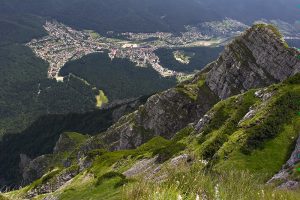 Serviciul European de Voluntariat are mai multe ramuri pe care acționează. Una dintre cele mai importante este cea de învățare. Da, ați înțeles bine, nu doar în școală înveți, ci înveți tot timpul prin orice faci. În cadrul SEV înveți în cel puțin două moduri:
Serviciul European de Voluntariat are mai multe ramuri pe care acționează. Una dintre cele mai importante este cea de învățare. Da, ați înțeles bine, nu doar în școală înveți, ci înveți tot timpul prin orice faci. În cadrul SEV înveți în cel puțin două moduri:
1. experimentând un stil de viață diferit într-o țară diferită și trăind independent.
2. luând parte la o serie de traininguri de educație non-formală care fac parte din Ciclul de Învățare SEV. Și acesta curprinde un Pre-departure Training, un On-Arrival Training, un Mid-Term Evaluation (pentru stagiile mai lungi de 6 luni) și un Post-EVS Meeting la întoarcerea în țară.
Acum vă voi explica pe scurt în ce constă un On-Arrival Training: principalul obiectiv al trainingului este să familiarizeze voluntarii cu țara gazdă, să îi pregătească pentru experiența SEV. OAT ajută voluntarii să facă față provocărilor culturale și de ordin personal. De asemenea îi ajută să se cunoască mai bine și să stabilească legături. Voluntarii primesc și îndrumare pentru a preveni crize și conflicte. Lungimea unui astfel de training este în medie de 5 zile și se desfășoară la începutul stagiului. În România ele sunt organizate de cele mai multe ori într-una din faimoasele stațiuni montane de pe Valea Prahovei.
European Voluntary Service has more ways in works. One of the main ones is the learning dimension. Yeah, you understood well, you don’t learn just in school, you learn no matter what you do. and during EVS you learn in at least two ways:
1. by experimenting a different life style în a different country and living independently.
2. taking part in series of nonformal educational trainings which are part of the Learning Cycle of EVS. This cycle consists of Pre-departure Training, On-Arrival Training, a Mid-Term Evaluation (for stages longer than 6 months) and a Post-EVS Meeting after retunring to the home country.
Now I’ll shortly explain what On-Arrival Training is: the main objective of the on-arrival training is to introduce the volunteers to the host country, preparing them for the service period and the EVS experience. On-arrival training helps the volunteers adapt to cultural and personal challenges. It allows volunteers to get to know each other and to build a network. Volunteers should also receive guidance on conflict prevention and crisis management. The length of such a training is in average 5 days and it is hold in the beginning of the stage. In Romania they are organized most of the times in one of the famous ski resorts from Prahova Valley.
This is all for now, but we’ll keep you updated.
Discovering…
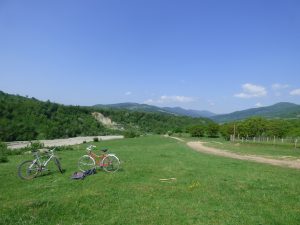 A month passed since Sophie joined the team of Curba de Cultură. In this time she started to discover the surroundings and the people, she had trips, walks and she got invited to festivities. Also the locals had to go through the same process, of getting used to see foreigners, to meet her on the streets and in the schools where she started to go, to do activities with pupils and to show them the usage of learning a foreign language.
A month passed since Sophie joined the team of Curba de Cultură. In this time she started to discover the surroundings and the people, she had trips, walks and she got invited to festivities. Also the locals had to go through the same process, of getting used to see foreigners, to meet her on the streets and in the schools where she started to go, to do activities with pupils and to show them the usage of learning a foreign language.
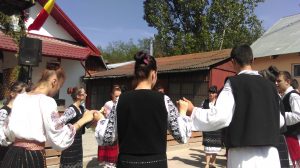 A trecut aproape o lună de când Sophie s-a alăturat echipei Curba de Cultură. În acest timp a explorat împrejurimile și s-a întâlnit cu diverși oameni, a făcut plimbări în natură și a fost invitată la diferite evenimente. În același timp și localnicii au trebuit să treacă prin același proces de adaptare, să se obișnuiască să vadă străini, să o întâlnească pe Sophie pe stradă sau în școlile unde a început să facă activități cu copiii.
A trecut aproape o lună de când Sophie s-a alăturat echipei Curba de Cultură. În acest timp a explorat împrejurimile și s-a întâlnit cu diverși oameni, a făcut plimbări în natură și a fost invitată la diferite evenimente. În același timp și localnicii au trebuit să treacă prin același proces de adaptare, să se obișnuiască să vadă străini, să o întâlnească pe Sophie pe stradă sau în școlile unde a început să facă activități cu copiii.
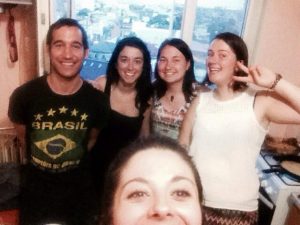 Also Sophie met Anamaria, the mentor who is going to help her get the best from the learning experience of this EVS.
Also Sophie met Anamaria, the mentor who is going to help her get the best from the learning experience of this EVS.
Sophie a întâlnit-o și pe Anamaria, cea care îi va fi mentor pe durata stagiului și care o va ajuta să învețe cât mai mult pe durata acestui stagiu SEV.
Care-i treaba cu SEV-ul?
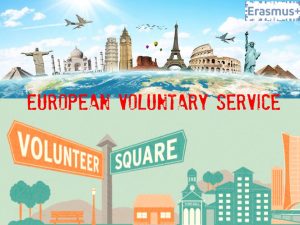 După cum spuneam în articolul anterior Asociația Curba de Cultură a început să găzduiască voluntari SEV (EVS în engleză – European Voluntary Service), iar Sophie este prima voluntară sosită aici la începutul lunii mai. Iar acum mă veți întreba ce înseamnă mai exact SEV.
După cum spuneam în articolul anterior Asociația Curba de Cultură a început să găzduiască voluntari SEV (EVS în engleză – European Voluntary Service), iar Sophie este prima voluntară sosită aici la începutul lunii mai. Iar acum mă veți întreba ce înseamnă mai exact SEV.
Ei bine, Serviciul European de Voluntariat reprezintă cea mai bună și mai la îndemână modalitate pentru tineri de a învăța, ajuta și călători într-o altă țară. De ce e cea mai bună modalitate? Pentru ca vine cu o multitudine de avantaje:
- ai ocazia de a trăi independent și de a vedea cât de bine te descurci
- ai ocazia de a pune în aplicare ideile propriu și primești și ajutor pentru asta
- ai ocazia de a socializa cu oameni pe care altfel nici nu te gândeai că i-ai putea întâlni
- ai ocazia de a învăța în toate modurile posibile, prin ceea ce muncești, prin călătorii pe care le faci, prin oamenii cu care îți petreci timpul și prin simplul fapt de a locui altundeva decât acasă cu părinții.
În plus nu trebuie să plătești cazare, facturi, transport local ori să te îngrijorezi cu ce vei face cumpărături, deoarece toate acestea sunt deja prevăzute în proiect. Ba mai mult primești banii de transport înapoi, ai cursuri pentru limba țării în care vei fi voluntar, ai o asigurare medicală completă și mai primești chiar și niște bani de buzunar.
Ce mai aștepți? Caută acum proiectul care ți se potrivește cel mai bine și aplică!
What about EVS?
EVS (European Voluntary Service) is an international volunteer programme funded by the European Commission. It enables all young people legally resident in Europe, aged between 18 and 30 years, to carry out an international volunteer service in an organisation or in a public body in Europe, Africa, Asia or South America for a period ranging from 2 to 12 months. It is very similar to the International Civil Service: provides the reimbursement of travel expenses (in full, up to specific limitations) and complete coverage of the costs of food and accommodation for the international volunteer.
Thanks to the intercultural dimension and its non-formal approach, European Voluntary Service is a unique opportunity to come into contact with cultures different from your own and to acquire new skills and abilities useful for your personal and professional growth.
European Voluntary Service is based on the following principles:
– increasing your own skills through the practical experience of volunteering abroad;
– encouraging the learning of another language;
– developing the ability to interact with persons of different language and culture;
– spreading tolerance among young people of the European Union;
– promoting active citizenship;
– supporting the development of local communities.
European Voluntary Service is NOT:
– occasional, part-time volunteering;
– an internship in an enterprise, in a humanitary organization or in an NGO;
– a recreational or a tourist activity;
– a language course abroad;
– a paid job.
European Voluntary Service proposes projects in different areas: culture, youth, sports, social care for the elderly, the disabled and the immigrants, cultural heritage, art, leisure, media and communications, environmental protection and education, rural development and development cooperation.
It is possible to do EVS in:
– all 28 European Union Member States;
– EFTA countries (Norway, Iceland and Liechtenstein);
– candidate countries (Turkey, Croatia);
– countries of Eastern Europe and the Caucasus;
– other countries of the world (with different timing and procedures).
European Voluntary Service is practically FREE OF CHARGE!! Travel expenses, accommodation, food, local transportation, health insurance, language lessons and monthly allowance are covered and financed by the European Commission. Volunteers are not even required to pay a fee when applying for an EVS project!
European Voluntary Service is based on a strong partnership between: the sending organization, the host institution and the volunteer.
The sending organization is responsible for the preparation of the volunteer before departure. It informs the candidate about the search procedures of EVS projects, pre-departure training and follows the volunteer at distance throughout his stay abroad and upon his return.
The volunteer will work 5 days out of 7 for a maximum of 40 hours per week and will have 2 days of leave per month (accumulative). He is obliged to participate in pre-departure, on-arrival and mid-term training and must comply with the directives of the host organization performing the tasks specified in the international volunteering project.
During the selection process host organizations cannot require the possession of specific skills or qualifications, only in special cases (duly justified according to the tasks the volunteers are responsible for) it is allowed to select candidates with a specific experience.
E.g. experience in working with children may be required, but not a degree in educational sciences.
Host organizations cannot require volunteers to belong to a specific ethnic or a religious group, nor have a particular sexual orientation or a political opinion.
E.g. it may be required that the volunteer comes from a particular country, such as France, but it is not possible to indicate ethnicity.